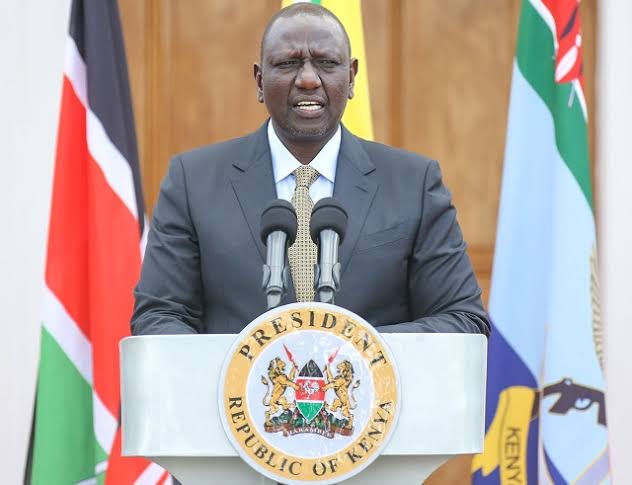
Kenyan President William Ruto has announced his decision to withdraw the controversial finance bill, which included tax increases, in response to the widespread protests that resulted in the deaths of at least 23 people and the burning of sections of the parliament building on Tuesday. Ruto initially vowed to sign the bill into law despite the public’s disapproval, but he has since conceded and agreed to engage in dialogue with the predominantly young protesters to hear their concerns.
In a televised address to the nation, President William Ruto acknowledged that it has become evident that the people have overwhelmingly rejected the finance bill, stating that Kenyans “want nothing” to do with the bill.
“Listening keenly to the people of Kenya who have said loudly that they want nothing to do with this Finance Bill 2024, I concede.
“And therefore, I will not sign the 2024 Finance Bill, and it shall subsequently be withdrawn. The people have spoken,” he said in the televised address.
President Ruto initially adopted a defiant stance, deploying military forces and pledging to suppress what he termed “violence and anarchy” during the protests. However, as public indignation swelled over the deadly crackdown on demonstrators, he subsequently backtracked on Wednesday.
READ ALSO:
Kenya: Military and Police Deployed in Nairobi After Protesters Storm Parliament Building
Anthony Joshua to Face Daniel Dubois for the IBF Heavyweight Belt
Wanjeri Nderu, head of the International Society For Human Rights, vividly described the chaotic scene to the BBC, likening it to a war zone, and accused police of firing live ammunition even before protesters breached the parliament building, condemning the excessive use of force.
The Catholic bishops released a statement strongly condemning the violent actions of security forces and imploring them to exercise restraint, specifically urging police to refrain from firing at protesters. In a bid to promote peaceful resolution, they also appealed to demonstrators to remain calm and avoid confrontations.
The government had justified the tax increases by citing the need to address Kenya’s significant debt burden of over $80 billion (£63 billion), which currently consumes more than half of the country’s annual tax revenue for servicing. The proposed taxes on essential items like bread, cooking oil, mobile money services, specialized healthcare, and motor vehicles were met with widespread opposition from Kenyans, who said that these measures would exacerbate the already dire cost-of-living crisis.


1 Comment
Pingback: North West Province to Scale Up Male Circumcision Drive During School Break - Mbamali